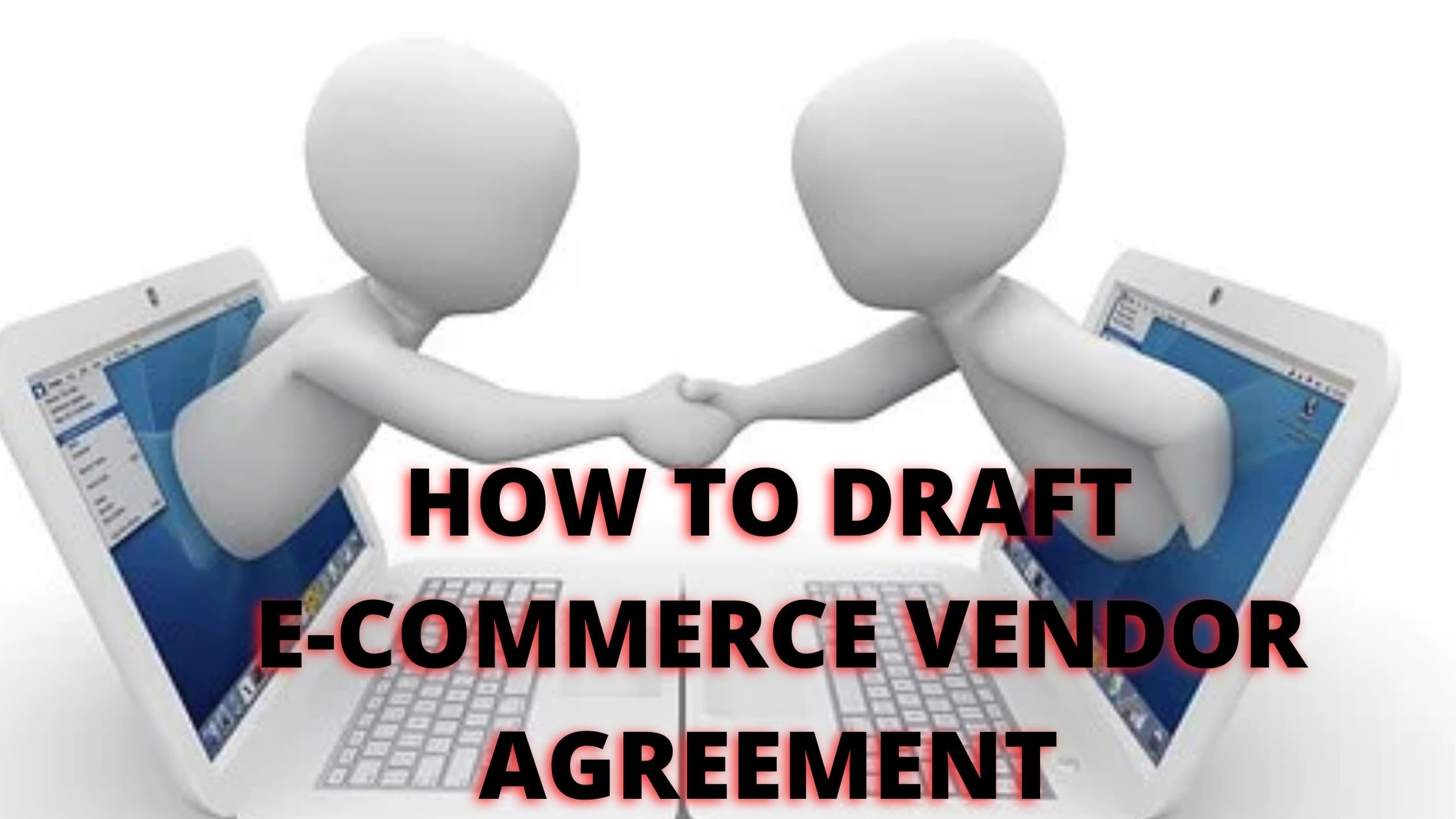HOW TO DRAFT AN E-COMMERCE VENDOR AGREEMENT?
E-Commerce or Electronic Commerce is the selling and purchasing of goods and services online, primarily over the internet. It involves various business transactions like B2B, B2C, C2C, or C2B. But in the contemporary world, B2C i.e. business to consumers is the most common transaction of all. The current situation of the world where the pandemic has sent everything into a momentary halt pushes people to use online stores for buying essentials or groceries involuntarily. E-Commerce has become a very crucial part of everyday life and makes people dependent on it.

HOW TO DRAFT AN E-COMMERCE VENDOR AGREEMENT?
E-Commerce or Electronic Commerce is the selling and purchasing of goods and services online, primarily over the internet. It involves various business transactions like B2B, B2C, C2C, or C2B. But in the contemporary world, B2C i.e. business to consumers is the most common transaction of all. The current situation of the world where the pandemic has sent everything into a momentary halt pushes people to use online stores for buying essentials or groceries involuntarily. E-Commerce has become a very crucial part of everyday life and makes people dependent on it. The sector of E-Commerce includes a number of platforms that supply goods for consumption like Amazon, Myntra, Big Basket, etc. These business entities have a list of vendors who supply their products and services to the consumers in exchange for money.
Such transactions may go haywire if they are not bound by any agreement or contract. Thus, an e-commerce vendor agreement should be signed between both the parties i.e. the online store and the vendor for the sale and purchase of goods and services. A vendor agreement has been defined under the Indian Contract Act, 1872 which helps both the parties in formulating clauses for their agreements. Some of the important clauses that should be included are mentioned below.
-
PARTIES INVOLVED: The agreement must mention the parties involved along with their addresses and signatures to ensure that it has been read and agreed upon by both parties. It binds both the parties to the agreement which forms a relationship between the two. The agreement should provide clear background information about both the parties and their intentions for entering into such contracts.
-
PAYMENT TERMS: One of the most essential clauses in a vendor agreement is that of payments and considerations. It is an indispensable part of the contract and binds the supplier to specify the payment in the agreement depending upon the services availed by them. In an E-Commerce Vendor Agreement, the mode of payment along with the amount should be specified too. In order to make it a legally valid contract, the considerations, incentives, and payment terms need to be mentioned clearly and signed by the vendor that proves his validation for the same.
-
TERM/TENURE OF THE AGREEMENT: The tenure of the business relationship must be clearly specified in the agreement in order to avoid future disputes regarding the expiration of the agreement. The term of the agreement denotes that the vendor can sign a contract with another company once the date of expiry has been reached. The agreement can be ended legally even before the expiry due to some situations. These situations should also be mentioned in the clause. Once the term ends or the parties dismiss the agreement legally, neither of them will be bound by any of the clauses of this agreement. Therefore, the company should amend the contract and extend the tenure with mutual understanding if the relationship works out well.
-
INTELLECTUAL PROPERTY RIGHTS: Intellectual Properties i.e. the logos, trademarks, and ideas of both the parties are protected under this clause. When a vendor sells the goods of the company, it does not transfer the rights over the intellectual property to them. The advertisement or promotion of the goods and services of one party cannot be claimed by another party though they have signed an agreement. The main motive of this clause is to safeguard the rights and interests of both parties.
-
OBLIGATIONS OF BOTH THE PARTIES: There are a set of rules and obligations that need to be fulfilled by both parties. First of all, the details that are inserted by the vendor for the products of the company must not violate any Intellectual Property rights of the company and should be lawful in order to avoid any charges against itself and the company. Secondly, the company should mention the details of the products clearly to the vendor so that they do not commit any errors while posting it. The description of the products, their visual images, and other details should not be deceptive and must be accurate so that the consumers are satisfied and the goodwill of both, the company and the vendor is maintained.
-
LIMITED LIABILITY: This clause ensures stability legally and financially. One of the most important factors of an agreement is to enlist the liabilities of each party very distinctively. It ensures approximate damage that both the parties might have to face under certain situations and protects the other party from the burden. Except for any breach of contract, neither of the parties is held liable for each other's losses or damages.
Regardless of the knowledge acquired by both the parties from their past experiences, it is always advised to hire an expert for drafting an E-Commerce Vendor Agreement. Though most of the clauses are similar to any other agreement, the minutes of a vendor agreement must be mentioned carefully and under expertise. The validation or mutual agreement of both the parties along with their signatures is essential for the services to begin. Thus, to ensure a healthy business environment, mutual agreement is of paramount importance.
To know more about, what is vendor agreement, see the video below -
By-
Ridhika Kapoor












